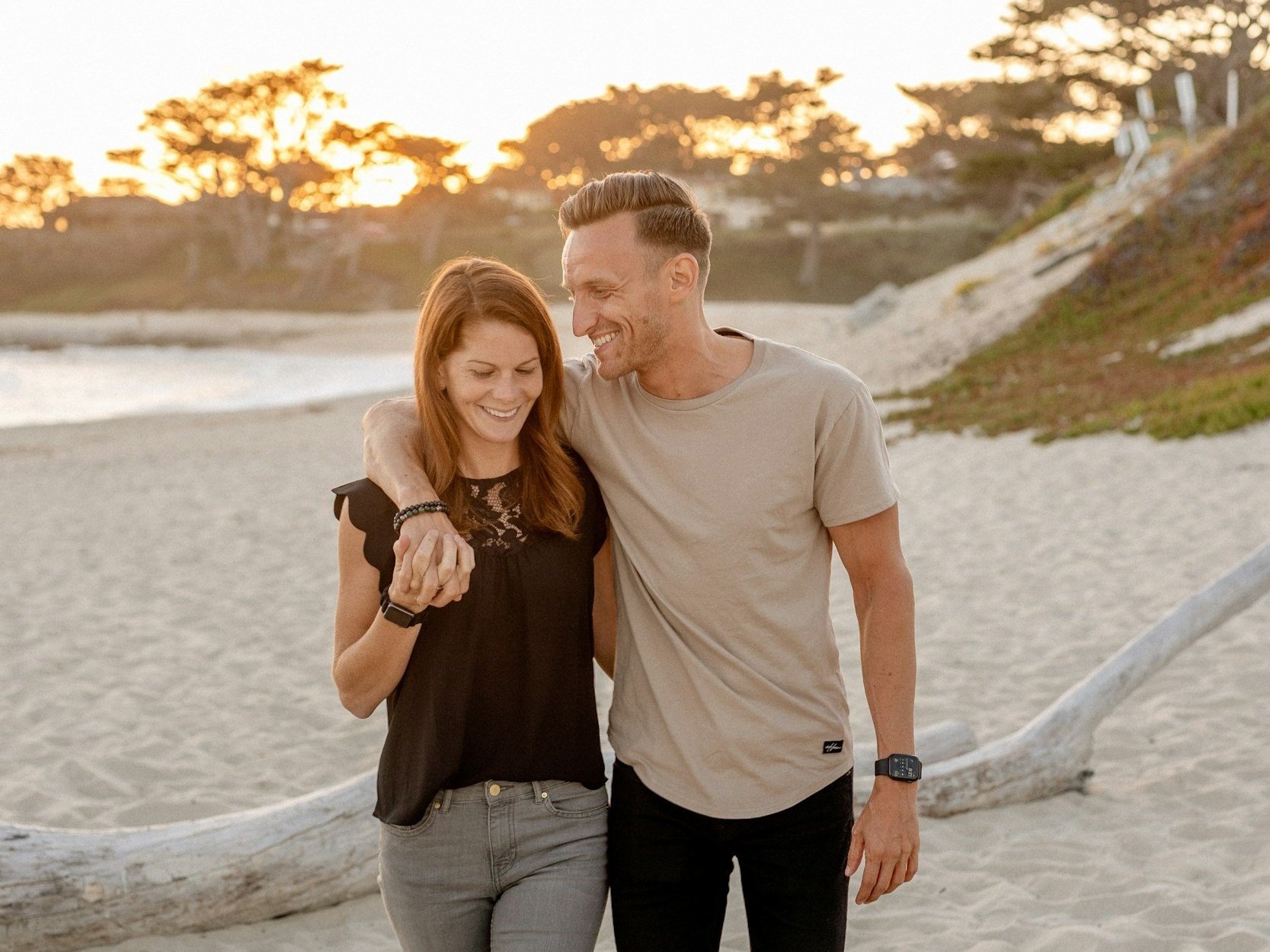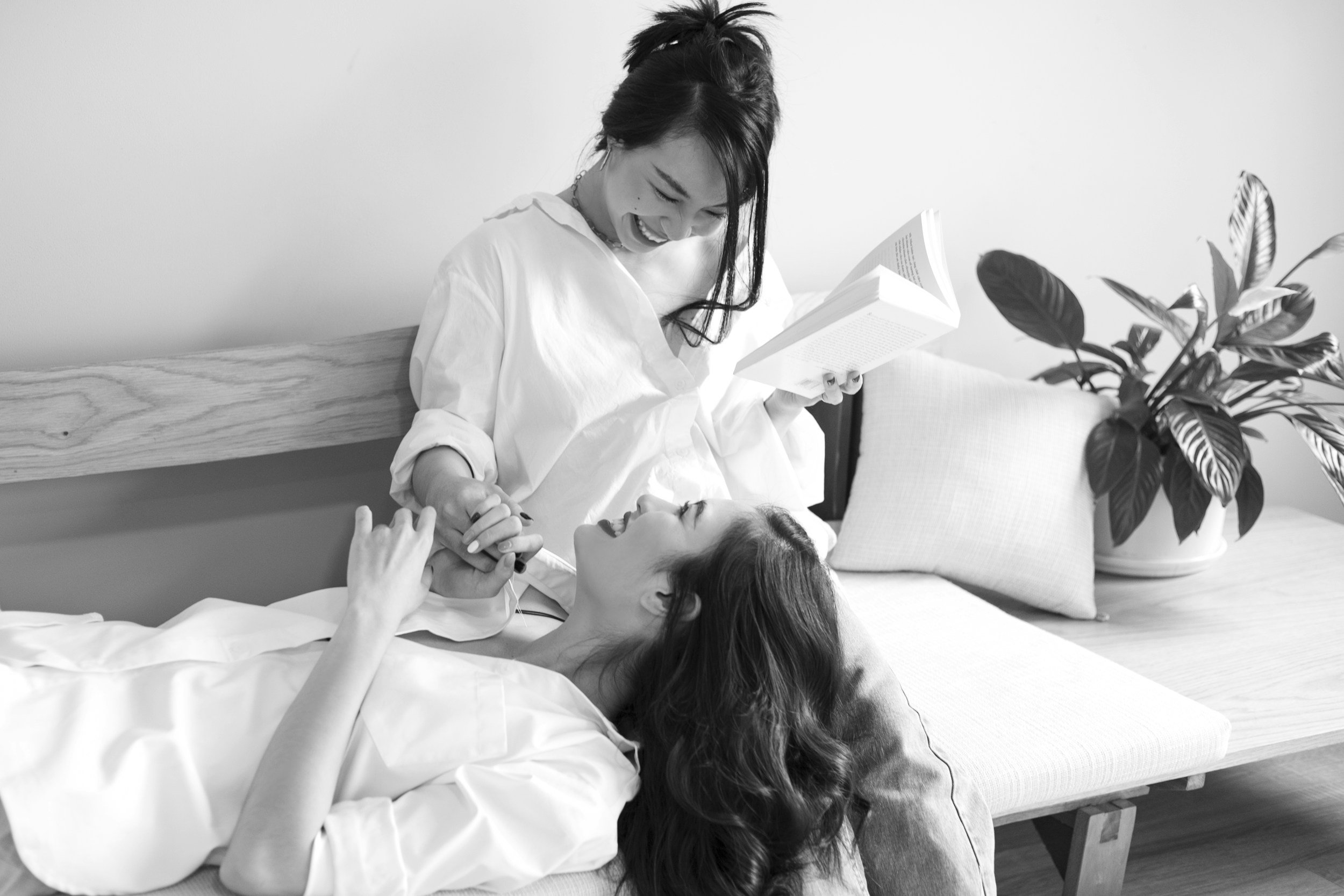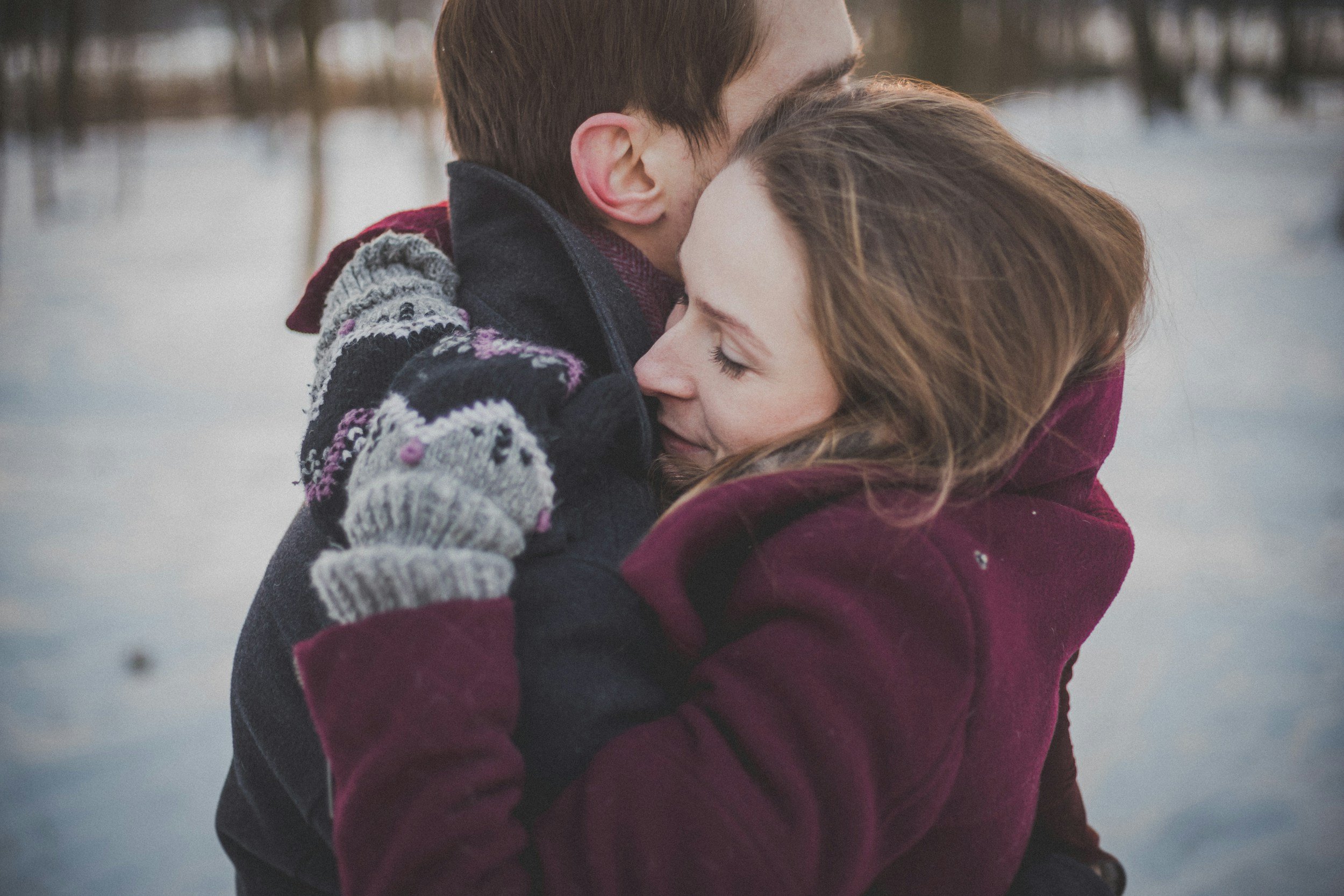
Secure Relationships & Intimacy
For individuals seeking individual therapy
If relationships have felt painful or confusing, you’re not alone.
Past wounds—whether from childhood, past partners, or experiences of trauma—can make it hard to feel safe, worthy, or connected in love. You may struggle with boundaries, fear rejection when expressing your needs, or carry a quiet loneliness that lingers, even in relationships.
Therapy offers a space to explore these patterns with compassion, not judgment. Together, we’ll gently untangle the roots of your pain, tend to the parts of you that learned to protect yourself, and build the foundation for relationships that feel steady, mutual, and safe. You don’t have to do this alone—and you don’t have to rush. Healing happens one small, thoughtful step at a time.
For couples seeking couples therapy
Even in relationships built on love, it’s easy to lose your way.
Maybe you keep having the same arguments over and over.
Maybe emotional or physical intimacy has faded.
Maybe you love each other deeply—and still feel disconnected.
Whatever’s brought you here, therapy offers a space to slow down, hear each other more clearly, and begin to heal what's been hurting.
This isn’t about blaming each other. It’s about finding your way back to each other.
I help couples create relationships that feel emotionally safe, resilient, and fulfilling.
Together, we’ll explore the patterns keeping you stuck and learn how to shift them—with care, honesty, and support.
No matter where you’re starting from, more secure relationships are within reach
Many people struggle with finding and maintaining the relationship they need and desire. This can particularly be the case for those who had to take care of themselves from a young age, whose primary caregivers or parents were not as involved, and whose parents struggled with meeting their emotional needs growing up. It’s also not uncommon for people to struggle with some form of insecure attachment and for these struggles to persist, despite attempts to break unhelpful relationship cycles and patterns.
But there is hope…
You don’t have to repeat the same cycles of feeling unfulfilled in your relationships, with your needs unmet. Through working together, we’ll explore and work to break unhelpful patterns that have left you feeling stuck, unsatisfied, and lonely. I support you in building a stronger sense of security within yourself and in your relationships. With support, it’s possible to build relationships where your needs are respected, your boundaries honored, and you feel prioritized. Therapy can help you with learning to be more assertive about your wants and needs, as well as practicing this within safer, healthier relationships.
Every client’s journey is unique, and progress depends on your individual circumstances, engagement in therapy, and consistent application of insights outside of sessions. Many clients notice meaningful shifts in how they relate to themselves and others over time, and therapy provides a supportive space to explore what could be possible for you. While working on these things in therapy can feel vulnerable and scary, you can take steps toward creating the relationships you crave and deserve.

FAQ
-
Relationships can bring out both the best and the most vulnerable parts of us. When you're feeling stuck, misunderstood, or disconnected, it can be painful and confusing—especially if you've been doing your best to make things work.
In our work together, we’ll explore the patterns playing out in your relationship with care and curiosity. I draw from attachment science and Emotionally Focused Therapy (EFT) to help you understand the emotional needs and protective strategies that show up between you and your partner—often rooted in early experiences. I also integrate techniques from IFS (Internal Family Systems) and EMDR to support deeper healing, helping you move through past hurts, rebuild trust, and experience more emotional safety and connection.
This work isn’t about blame—it’s about understanding what’s happening beneath the surface so that real change becomes possible. Whether you’re navigating conflict, struggling with intimacy, or just feeling far from your partner, therapy can be a space to reconnect with yourselves and each other in a more honest, grounded way. I’ll walk with you at a pace that feels respectful, and when it helps, I’ll bring in humor and practical analogies to keep the process human, relatable, and just a little lighter.
-
Yes—absolutely. I welcome and affirm LGBTQIA+ individuals and couples, as well as those in polyamorous or ethically non-monogamous relationships. I honor the diverse ways people love, connect, and build meaningful partnerships.
My approach is rooted in curiosity, compassion, and respect. I’m here to support you in exploring the dynamics of your relationship(s), strengthening communication, deepening emotional and physical intimacy, and navigating challenges in a way that feels aligned with your values. All parts of who you are—individually and relationally—are welcome in this space.
-
You're not alone in feeling that way. Talking about intimacy can bring up fear, shame, or vulnerability, especially if you've been hurt or misunderstood in the past.
In our work together, there's no pressure to share anything before you're ready. We'll move at your pace, and I’ll support you in exploring these tender areas with care, curiosity, and compassion. I also use humor and relatable analogies when it feels helpful—because sometimes a little lightness or a well-placed metaphor can make something that feels overwhelming easier to understand and talk about.
Whether you're untangling past experiences, reconnecting with your needs, or navigating intimacy in a current relationship, we'll create a space where your voice and boundaries are respected—and where it's safe to be exactly where you are. It may be hard to believe it’s possible for you right now, but I am committed to supporting clients in creating intimate experiences that are freeing and fulfilling—whatever that means for them.
Please note: While I have received training to help clients with sex/intimacy concerns, I am not a certified sex therapist. For those with more complex intimacy needs, I recommend visiting the AASECT directory on their website to find options for certified sex therapists. If you are unsure if this could apply in your case, email me at amber@selflovecounselingllc.com or book a consultation and I will offer you my recommendations.
-
Yes. Religious sexual shame can quietly shape how people experience closeness, desire, and emotional connection in adulthood. Even long after leaving a religious context, individuals may struggle with guilt around desire, difficulty relaxing into intimacy, or feeling conflicted between their values and their lived experience.
These patterns often show up not as conscious beliefs, but as hesitation, shutdown, or anxiety within relationships. Therapy focused on secure attachment and emotional safety can help partners or individuals understand these responses with compassion and begin creating new experiences of trust, presence, and mutual attunement.
Healing this kind of shame is less about changing beliefs and more about supporting the nervous system to experience intimacy as safe, consensual, and aligned with one’s values.
-
Yes. I work with many clients who carry the deep, complex pain of sexual trauma. Whether it happened in childhood, adulthood, or across different moments in your life, the impact can be far-reaching—shaping how you feel in your body, how safe you feel in relationships, and how you relate to yourself.
In our work together, we’ll move at a pace that feels safe and respectful for you. You don’t have to share everything all at once or have the words perfectly formed. I’ll support you in gently reconnecting with your sense of safety, agency, and worth. Healing from sexual trauma is possible—and you don’t have to navigate it alone. For more information about my approach, visit the trauma specialty page to learn more about how I use evidence-informed approaches such as EMDR and Internal Family Systems (IFS) to support clients in healing from trauma.
-
Yes—absolutely. Many of my clients come to therapy wanting support in navigating dating, deepening self-trust, and building relationships that feel secure, respectful, and fulfilling.
Together, we’ll explore what’s been getting in the way—whether it’s past relationship pain, self-doubt, fear of vulnerability, or patterns you’re ready to shift. I use an attachment-based lens to help you understand your emotional needs and how to honor them, and I integrate techniques from IFS and EMDR to gently work through past wounds that might still be shaping how you show up in relationships.
This isn’t about changing who you are—it’s about helping you connect more fully with yourself, so you can date with more clarity, confidence, and intention. We’ll go at your pace, and I’ll offer guidance, reflection, and the occasional analogy (or dose of humor) to make the process feel a little lighter and more human.
-
Attachment is the way we connect and relate to the important people in our lives. Often, when we talk about attachment, we focus on how our early relationships with caregivers or parents shape the way we relate to romantic partners as adults. But attachment is more than just that—it also includes how we connect with friends, teachers, coworkers, bosses, and past partners.
It’s completely normal to feel secure and comfortable with some people, while feeling uncertain or distant with others. These patterns give us important clues about how we experience safety, trust, and closeness.
If you’re curious to learn more about your own attachment style, The Attachment Project offers a helpful online quiz.
-
The four main attachment styles are: secure, anxious, avoidant, and fearful-avoidant (also called disorganized). Here’s a way I often describe them to clients using a simple image:
Imagine a couple having a tense, uncomfortable conflict. One partner goes into another room and closes the door, trying to create distance—that’s avoidant. A partner with fearful-avoidant attachment might take this a step further and build a brick wall next to the door, creating even more distance and protection.
Now, imagine a partner who’s pounding on the door, urgently trying to be let in—that’s anxious.
So what does secure look like? A secure partner might calmly knock on the door, check in gently, and say something like, “I’m here when you’re ready,” respecting their partner’s need for space while staying emotionally available.
If you recognize yourself more in the anxious, avoidant, or fearful-avoidant partners, it’s okay—many do. The idea of being the secure partner can feel both deeply desirable and maybe a little out of reach. That’s where I come in. Together, we can work toward helping you feel safer and more connected in your relationships.
For more information, you can also visit The Attachment Project’s website to explore the four attachment styles in greater depth.
-
Yes. I’ve helped many clients who have felt both anxious and avoidant in relationships—this is often called a disorganized or fearful-avoidant attachment style. This complex mix can be really challenging when you’re trying to build fulfilling connections. But the good news is that relationship security is possible.
In therapy, I can help you identify what triggers your anxious feelings, reduce reassurance-seeking as well as protest behaviors, build trust in those who deserve it, and gently lean into healthy conflict instead of avoiding it. I use attachment science alongside approaches like IFS and EMDR to support deep healing and growth.
On a personal note, I’ve experienced fearful-avoidant attachment myself, so I have an understanding of how difficult it can be. Through therapy, self-reflection, and intentional relationship work, I’ve found more security and peace. I know from both my own experience and my clinical work that positive change is possible—and I’m here to support you in that process.
-
Yes. Just like with romantic relationships, friendships can bring up feelings of insecurity or uncertainty—and that’s okay. Together, we’ll look at what’s working in your friendships and what feels challenging. I’ll help you identify what triggers those feelings of insecurity and support you in building a stronger sense of safety and trust in your connections. You deserve friendships where you feel seen, valued, and secure.
Healing Begins with Knowing You Deserve Real Love
I’m here to support you every step of the way.

